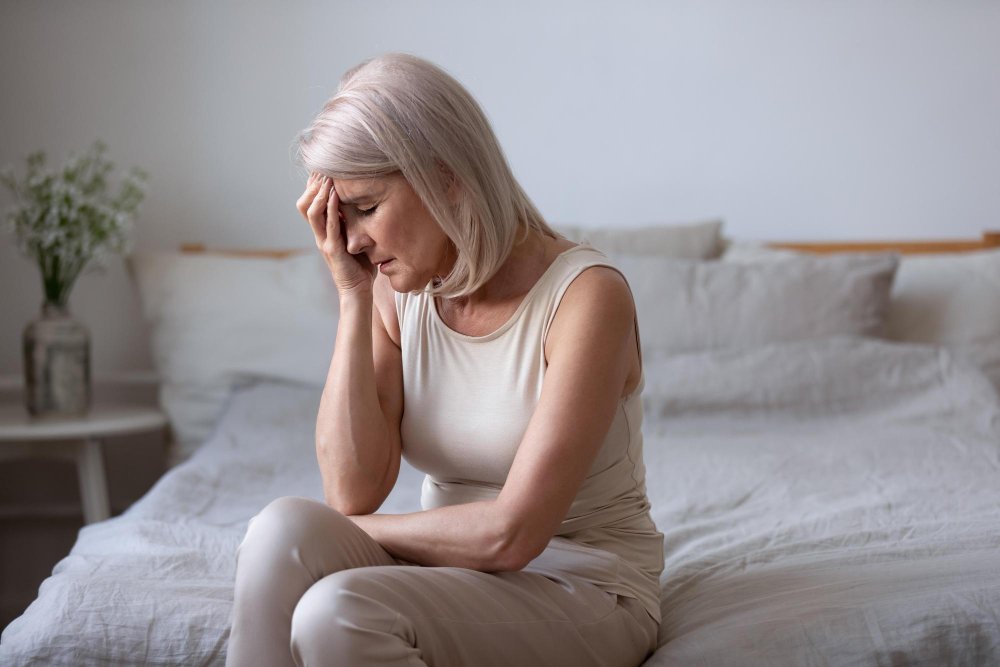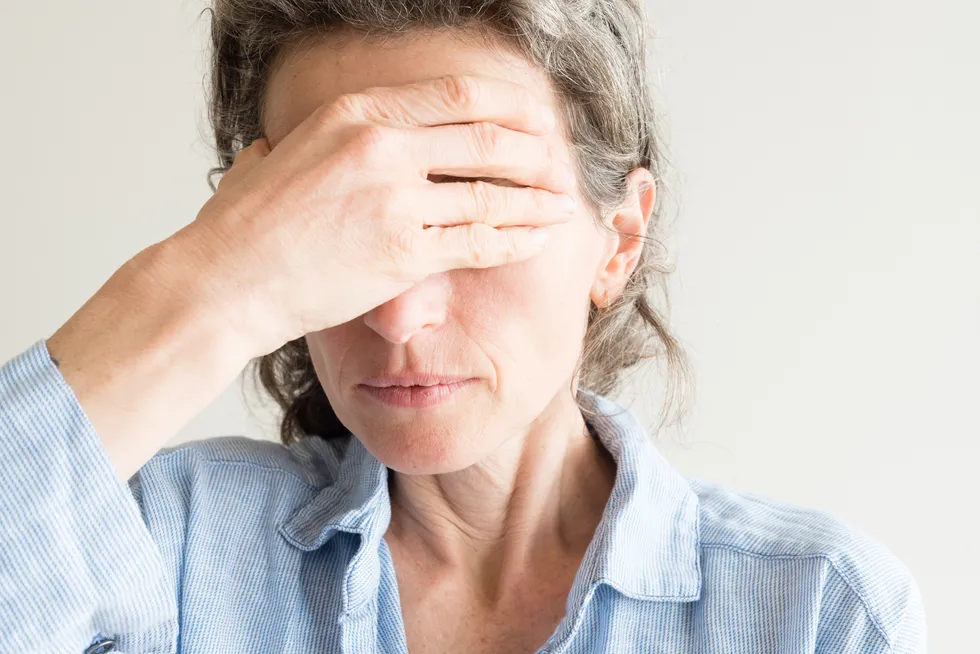Entering menopause can bring about a multitude of changes in a woman’s body, including shifts in sleep patterns and overall sleep quality. While some women experience increased sleepiness during menopause, others may encounter difficulties with falling asleep or staying asleep. In this guide, we’ll see the relationship between menopause and sleep, exploring the factors that contribute to sleepiness during this transitional phase of life and offering strategies for managing sleep disturbances effectively.

Contents
Does Menopause Make You Sleepy?
Yes, menopause can often make you feel sleepy or fatigued for several reasons:
- Hormonal Changes: A major factor is the decline in estrogen and progesterone levels during menopause. These hormones play a role in regulating sleep, and their decrease can disrupt sleep patterns.
- Night Sweats: A common symptom of menopause is night sweats, which can wake you up at night and disrupt your sleep cycle. The act of sweating itself can also leave you feeling drained.
- Stress and Anxiety: Menopause can be a stressful time, and these emotional changes can further disrupt sleep. Hot flashes and other symptoms can also contribute to anxiety, creating a negative feedback loop.
- Changes in Sleep Architecture: Some women experience a decrease in deep sleep during menopause, which is the most restorative stage of sleep. This can leave them feeling tired even after a full night’s sleep.
How to Treat Menopause Fatigue?
Treating menopause fatigue involves a multifaceted approach that addresses both physical and emotional factors contributing to tiredness. Here are some strategies to help alleviate menopause-related fatigue:
1. Maintain a Healthy Lifestyle
- Eat a balanced diet rich in fruits, vegetables, whole grains, and lean proteins to provide sustained energy.
- Stay hydrated by drinking plenty of water throughout the day.
- Engage in regular physical activity, such as walking, yoga, or swimming, to boost energy levels and improve overall well-being.
2. Prioritize Sleep
- Establish a consistent sleep schedule by going to bed and waking up at the same time every day, even on weekends.
- Create a relaxing bedtime routine to signal to your body that it’s time to wind down, such as taking a warm bath or practicing relaxation techniques like deep breathing or meditation.
- Ensure your sleep environment is conducive to restful sleep, with a comfortable mattress, supportive pillows, and a cool, dark, and quiet room.
3. Manage Stress

- Practice stress-reduction techniques such as mindfulness meditation, progressive muscle relaxation, or journaling to alleviate feelings of tension and anxiety.
- Delegate tasks when possible and learn to say no to excessive commitments to avoid overwhelming yourself.
4. Seek Support
- Talk to friends, family members, or a therapist about your feelings and experiences during menopause. Sharing your concerns can provide emotional support and perspective.
- Consider joining a support group or online community for women going through menopause to connect with others who understand what you’re going through.
5. Consider Hormone Therapy
For some women, hormone replacement therapy (HRT) may help alleviate menopause symptoms, including fatigue. Discuss the potential benefits and risks of HRT with your healthcare provider to determine if it’s a suitable option for you.
6. Address Underlying Health Conditions
Fatigue can be a symptom of underlying health issues such as thyroid disorders or depression. If your fatigue persists despite lifestyle changes, consult with your healthcare provider to rule out any medical conditions and explore appropriate treatment options.
7. Stay Positive and Patient

Be aware that managing menopause-related fatigue may take time, and be patient with yourself as you implement lifestyle changes and seek support. Focus on small, achievable goals, and celebrate your progress along the way.
Frequently Asked Questions
1. How does menopause affect sleep?
Menopause can disrupt regular sleep patterns due to hormonal changes. These changes can lead to sleep disorders, such as sleep apnea and restless legs syndrome. Lifestyle factors like high intake of caffeine or alcohol can aggravate these disturbances.
2. How can menopause fatigue be treated?
Menopause fatigue can be managed through lifestyle changes such as offsetting sleep debt, aligning to your natural circadian rhythm, and improving sleep hygiene. Other strategies include cognitive behavioral therapy, menopause hormone therapy, and regular physical activity.
3. Is it common to sleep a lot during menopause?
Insomnia is common throughout the menopausal transition. Ideally, in order to get “good” sleep, you should aim for about seven to eight hours of quality, uninterrupted sleep per night. However, individual sleep needs may vary.
4. Why might I feel tired all the time as I get older?
Frequent fatigue as we age can be due to various factors such as inadequate sleep, poor diet, or excessive alcohol consumption. Fatigue is also common amongst adults above 50 due to menopause or low testosterone levels.
5. What medication can be used to treat menopause fatigue?
Hormone therapy is commonly used, available as oral tablets or topical gels and skin patches. Nonhormonal medications such as selective serotonin reuptake inhibitors (SSRIs) or selective norepinephrine reuptake inhibitors (SNRIs) are other potential options.
6. Is fatigue normal at the age of 55?
While fatigue is more common as we age, persistent or excessive tiredness requires medical attention. Although aging can cause a decrease in energy levels, chronic fatigue may indicate underlying health issues.
I am a medical student with experience and interest in Women’s health and well-being.